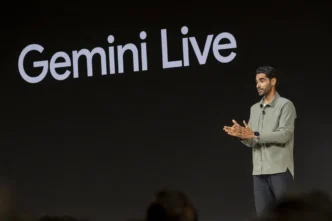Two innovative MIT graduates have transformed the way we think about synthetic voice technology. Phonic, a groundbreaking Voice AI platform founded by Moin Nadeem and Nikhil Murthy, has recently secured $4 million in seed funding led by Lux Capital. This bold move is set to redefine the industry by delivering an end-to-end voice solution that promises reliability and speed.
Redefining Voice AI Capabilities
As the demand for AI-generated voices grows, many businesses still hesitate to integrate Voice AI into their workflows. Although current synthetic voices work well for audiobooks, podcasts, narrated articles, and even basic customer support, reliability remains a significant hurdle. Phonic steps into this gap with a complete voice technology stack designed to enhance reliability while reducing latency.
The company’s founders, who have been close collaborators since their days at MIT, noticed that most competitors were assembling voice solutions by piecing together separate components—such as automatic voice recognition and text-to-speech modules. “When we spoke with customers, it was clear that scalable and reliable Voice AI solutions were scarce,” explains Murthy. Their innovative approach involves training their models in-house, ensuring seamless integration and robust performance.
A Unique In-House Approach
Phonic’s strategy sets it apart in the competitive Voice AI market. Unlike others that rely on stitching together various pre-built models, Phonic builds its models end-to-end from the ground up. This approach not only enhances the quality of the output but also embeds critical reliability features directly within the models.
“Owning the models allows us to incorporate reliability measures at every level,” Murthy shares. This level of control means that Phonic’s system is inherently more efficient and resilient, capable of handling diverse audio inputs—from accented speech to muffled recordings—with ease.
Such a robust methodology positions Phonic as a key player in sectors where precision is vital. Currently, the platform is piloting its technology with select partners in the insurance and healthcare industries, where clear, reliable voice interactions can significantly enhance user experiences.
The Road to Broader Adoption
With initial trials already underway, Phonic is gearing up for a broader market launch in the coming months. Prospective clients will soon have the opportunity to test the platform directly via the company’s website. This move promises to democratize access to advanced Voice AI technology and pave the way for more businesses to adopt AI-enhanced customer interactions and content delivery.
Moin Nadeem, who previously contributed to MosaicML—a company acquired by Databricks for $1.3 billion—emphasizes the importance of Phonic’s comprehensive solution. “Many companies in the Voice AI space assemble fragmented workflows. We believe our in-house model training sets a new benchmark for reliability and cost-efficiency,” he states.
Backing from Industry Leaders
The $4 million seed round is not just a financial milestone; it’s also a strong vote of confidence from industry leaders. The funding round was spearheaded by Lux Capital, with participation from notable figures such as Amjad Masad, co-founder of Replit; Clem Delangue, co-founder of Hugging Face; Qasar Younis, co-founder of Applied Intuition; and Erik Bernhardsson, founder of Modal Labs.
Grace Isford, a partner at Lux Capital, expressed her enthusiasm for the venture: “Moin and Nikhil are exceptional technologists. Their innovative approach, which combines diffusion and proprietary models, brings a fresh perspective to the Voice AI sector. Their background in creating a machine learning club at MIT further highlights their commitment and expertise.”
Transforming Industries with Voice AI
Phonic’s cutting-edge approach isn’t just about technological advancement—it’s about creating tangible benefits across multiple sectors. In insurance and healthcare, for instance, the integration of a reliable Voice AI system can streamline customer service, reduce wait times, and even enhance accessibility for users with disabilities. By providing a consistent and natural-sounding voice interaction, Phonic aims to boost efficiency and improve overall customer satisfaction.
The team’s commitment to refining Voice AI through extensive training on diverse recordings ensures that the system is not only adaptable but also capable of understanding a wide range of vocal nuances. This versatility is key for industries that require high levels of precision in communication.
Looking Ahead
Phonic’s journey from a collaborative project at MIT to a promising startup backed by renowned investors is a testament to its innovative spirit. With its focus on an integrated and reliable Voice AI solution, the company is poised to make significant waves in the technology landscape. As the product prepares for a broader launch, industry observers and potential clients alike are eager to see how this new approach will shape the future of synthetic voice technology.
In a world where digital interactions are becoming increasingly sophisticated, Phonic’s comprehensive solution could very well be the catalyst that propels Voice AI into mainstream use. Its commitment to excellence and innovation sets a new standard, not only for voice technology but for the entire field of artificial intelligence.













